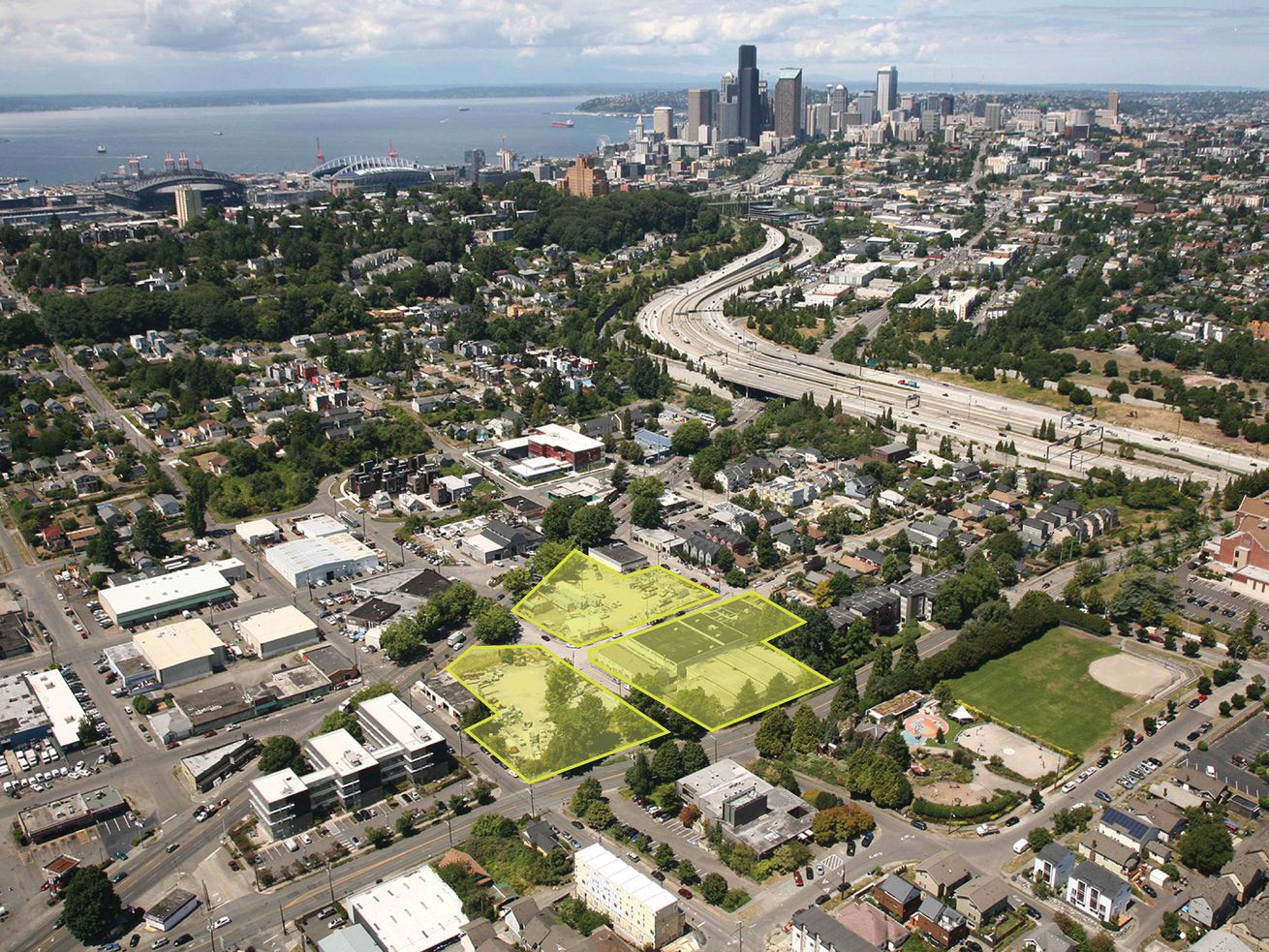
Two developers are collaborating with the state to clean up a contaminated site—then building homes there
On the border of Mount Baker and Judkins Park—near the Northwest African American Museum and a future light rail station—a chunk of land has sat vacant for more than a decade, requiring a large amount of environmental cleanup to make development possible. But soon, the lot will contain around 700 homes, with 300 of them income-restricted affordable.
Late last month, nonprofit housing developer Mount Baker Housing and private developer Lake Union Partners announced they’d partnered with the Washington Department of Ecology to make the lot safe to build and live on.
Sometimes, after certain kinds of businesses operate on a site for a long time—often gas stations or some dry cleaning businesses, for example—fixing up the property so the groundwater is safe can be time-consuming and expensive, leaving lots vacant for long periods of time. These environmentally contaminated sites are referred to as “brownfields.”
According to the developers, multiple types of businesses caused contamination at this particular site, a long-vacant, multi-block lot at the corner of Rainier Avenue S and Grand Street. The contamination, said the developers, long made the sites infeasible to build on, until a partnership with the Washington State Department of Ecology Brownsfields program came through. Mount Baker Housing is already working with the program to clean up a former gas station and dry cleaners in Mount Baker.
“This pioneering project leverages the strengths and resources of a non-profit affordable housing developer and a [private] developer alongside the resources of a public agency—all with a shared focus of building affordable housing,” said Mount Baker Housing Association director of real estate Conor Hansen in a statement. “It represents the type of creative, innovative work we aspire to build.”
Mount Baker Housing will be building at least 150 homes on the site, which the developers are calling the “Grand Street Commons,” targeted at households earning 60 percent of area median income (AMI), $42,150 for one person or $60,200 for a family of four. Half of those units will be two- or three-bedrooms to accommodate families.
Lake Union Partners will add another 150 affordable homes at the site aimed at households making 60 to 85 percent AMI, plus another 400 market-rate apartments, with a mix of apartments from studio to one-bedroom. This arm of the development assumes passage of the city’s mandatory housing affordability rezone package.
The site was purchased from multiple owners for just shy of $20 million, with local firm HAL Real Estate supplying most of the equity.


